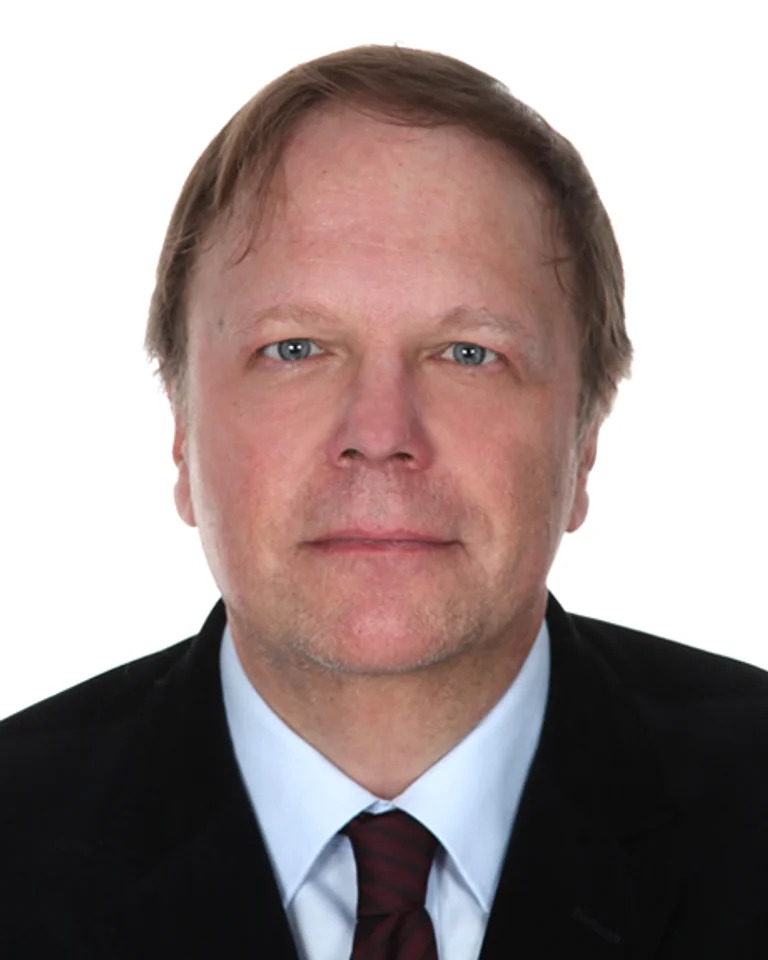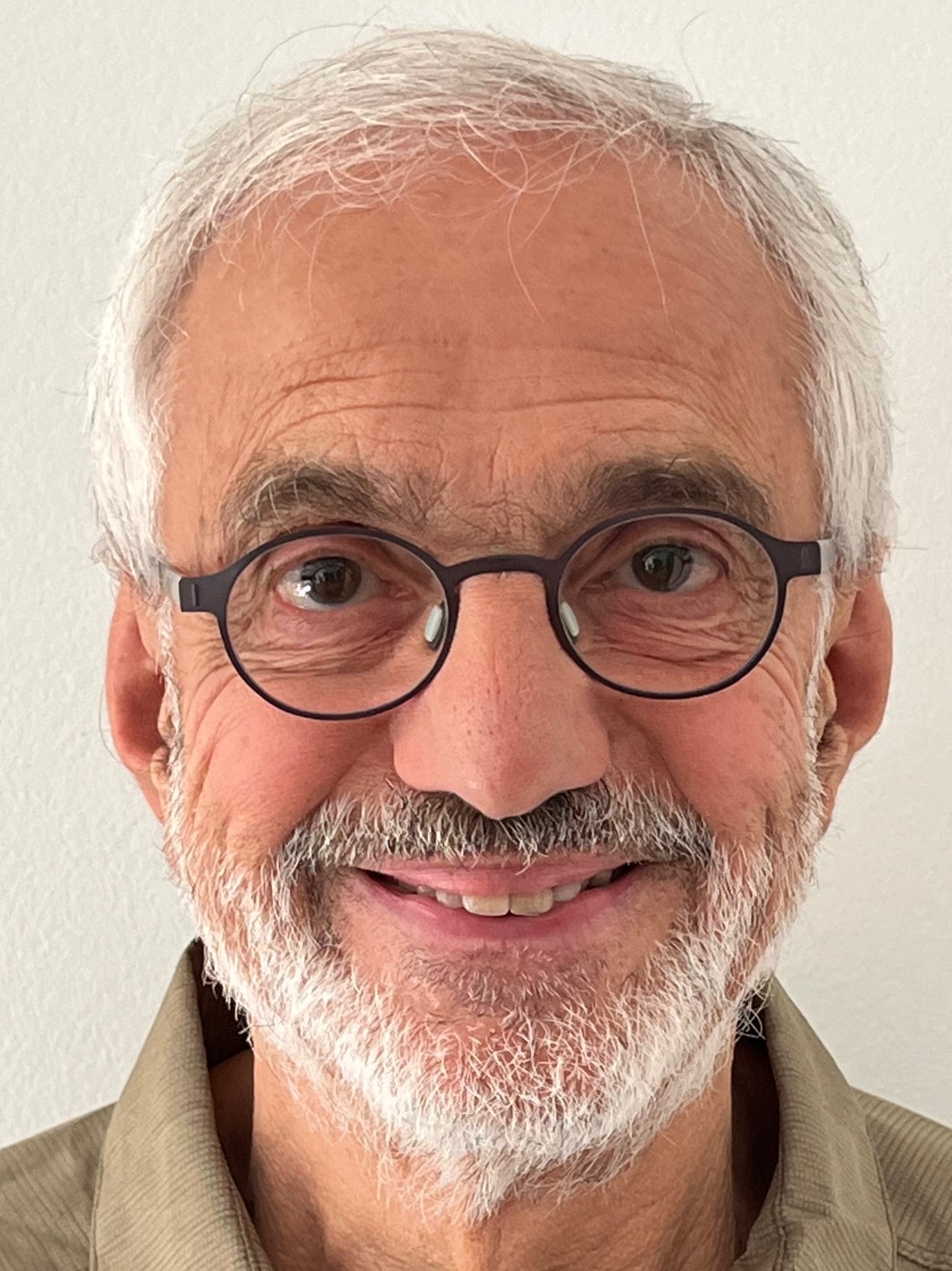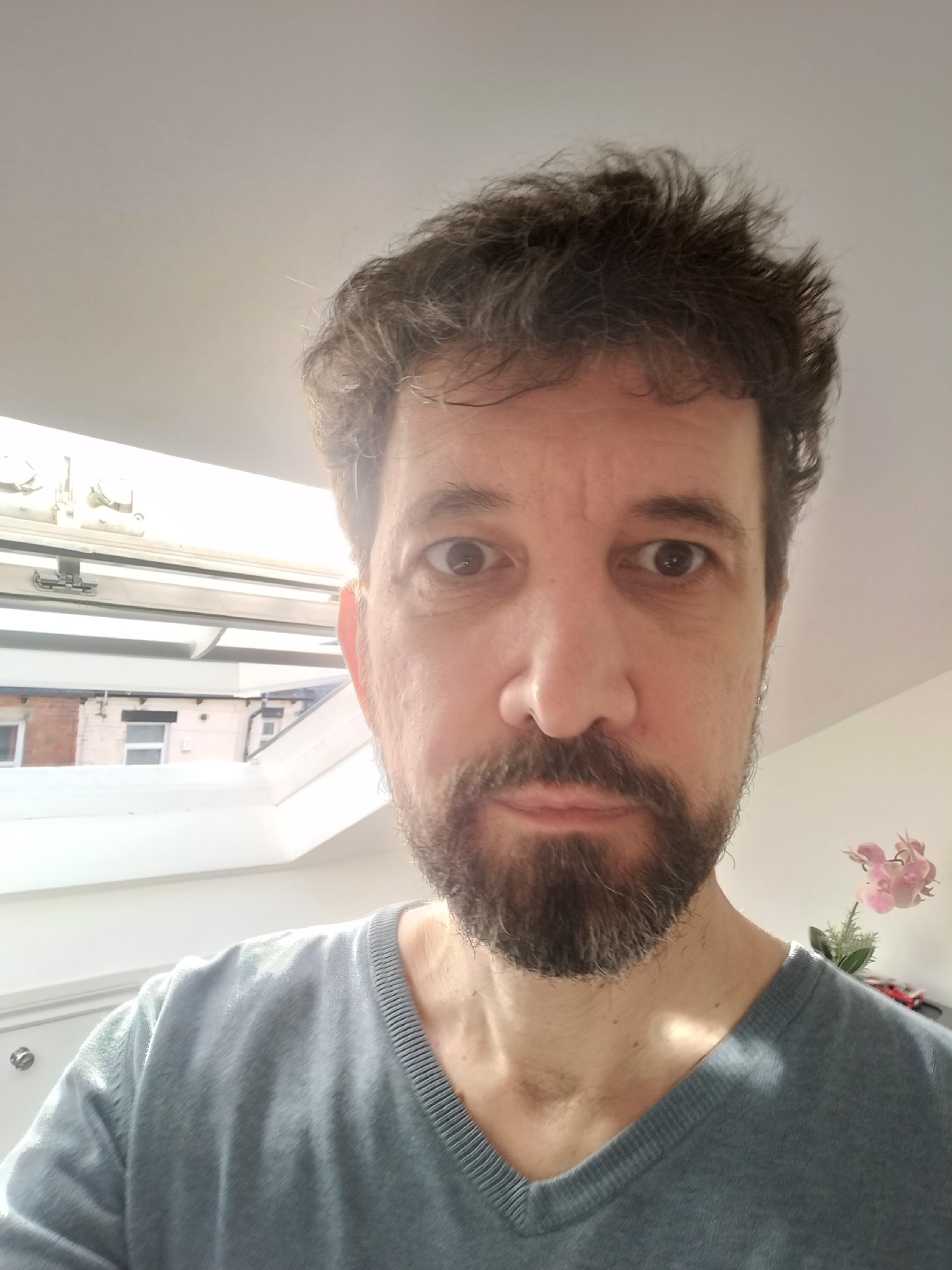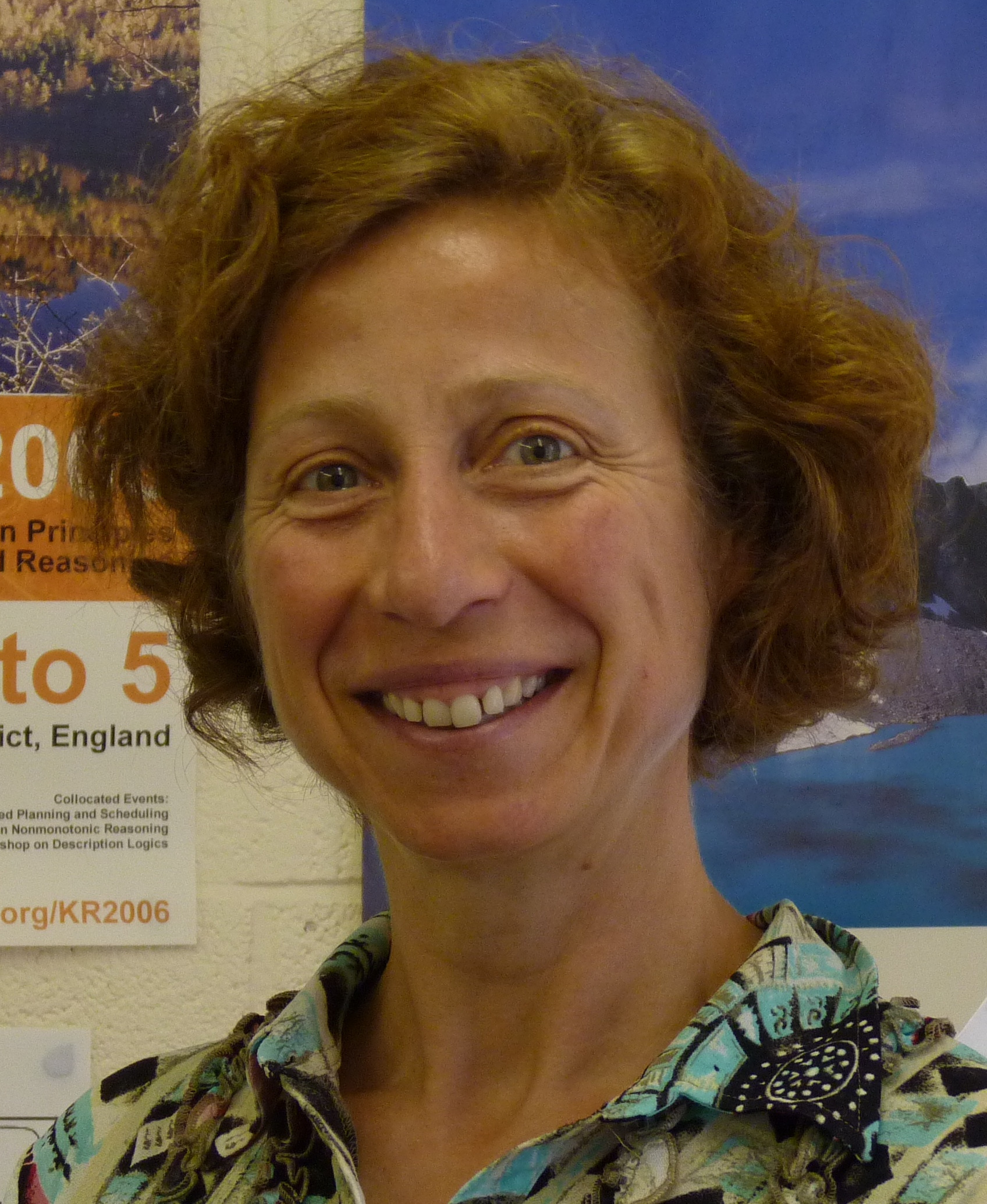
FoIKS 2024 Conference Program
The program of the conference can be found here and the conference proceedings can be found here.
Accepted Papers
- Flavio Ferrarotti, Klaus-Dieter Schewe, Yamine Ait Ameur, Neeraj Kumar Singh and Peter Riviere - A Complete Fragment of LTL(EB)
- Moritz Bayerkuhnlein and Diedrich Wolter - Model-Based Diagnosis with ASP for Non-Groundable Domains
- Ringo Baumann and Anne-Marie Heine - On Naive Labellings - Realizability, Construction and Patterns of Redundancy
- Minna Hirvonen - Axiomatization of implication for probabilistic independence and unary variants of marginal identity and marginal distribution equivalence
- Joachim Biskup - Relational Schemas with Multiplicity Bounds, Diversity Bounds and Functional Dependencies
- Franz Baader, Francesco Kriegel and Adrian Nuradiansyah - Inconsistency- and Error-Tolerant Reasoning w.r.t. Optimal Repairs of ELbot Ontologies
- Max Sandström, Juha Kontinen and Jonni Virtema - A Remark on the Expressivity of Asynchronous TeamLTL and HyperLTL
- Jonas Philipp Haldimann, Christoph Beierle and Gabriele Kern-Isberner - Syntax Splitting and Reasoning from Weakly Consistent Belief Bases with c-Inference
- Mena Leemhuis, Özgür Lütfü Özcep and Diedrich Wolter - Decomposing Analogy: A Logic Characterization
- Yasir Mahmood, Jonni Virtema, Timon Barlag and Axel-Cyrille Ngonga Ngomo - Computing Repairs Under Functional and Inclusion Dependencies via Argumentation
- Kai Sauerwald, Christoph Beierle and Gabriele Kern-Isberner - Propositional Variable Forgetting and Marginalization: Semantically, Two Sides of the Same Coin
- Bence Kiraly and Attila Sali - Minimal Armstrong databases for cardinality constraints
- Marie-Christine Lagasquie-Schiex, Jean-Guy Mailly and Antonio Yuste-Ginel - How to Manage Supports in Incomplete Argumentation
- Fausto Barbero - On the logic of interventionist counterfactuals under indeterministic causal laws
- Thomas Mayer - An investigation of the negationless fragment of the Rescher-Härtig quantifier
- Marco Wilhelm, Gabriele Kern-Isberner and Christoph Beierle - Core c-Representations and c-Core Closure for Conditional Belief Bases
- Giorgio Cignarale, Roman Kuznets and Thomas Schlögl - Minimizing agents’ state corruption resulting from leak-free epistemic communication modeling
- Giovanni Buraglio, Wolfgang Dvořák, Anna Rapberger and Stefan Woltran - Constrained Derivation in Assumption-Based Argumentation
- Giuseppe De Giacomo, Marco Favorito and Luciana Silo - Stochastic Service Composition for LTLf Goals
- Martin von Berg, Arthur Sanin and Christoph Beierle - Scaling Up Nonmonotonic c-Inference via Partial MaxSAT Problems
- Anssi Yli-Jyrä, Heini Ikävalko and Tomi Janhunen - Integrating Competencies into Preventive Maintenance Scheduling with Answer Set Optimization
Invited Speakers

In the contexts of database quertying and constraint satisfaction problems (CSPs), the hypertree decomposition method can be used query optimization and for faster CSP solving and for, whereby problem instances having a low hypertree width (i.e., a low degree of cyclicity) can be recognized and decomposed automatically, and efficiently evaluated. Queries and CSPs having bounded hypertree width are also highly parallelizable. The notion of Hypertree decomposition was introduced in 1999. This talk reviews - in form of questions and answers - the main relevant concepts and algorithms and surveys selected related work including applications and more recent results.
Georg Gottlob is a Professor of Computer Science at the University of Calabria. Until recently, he was a Royal Society Research Professor at the Computer Science Department of the University of Oxford, a Fellow of St John's College, Oxford, and an Adjunct Professor at TU Wien. His interests include knowledge representation, database theory, query processing, web data extraction, and (hyper)graph decomposition techniques.
Gottlob has received the Wittgenstein Award from the Austrian National Science Fund and the Ada Lovelace Medal (UK). He is an ACM Fellow, an ECCAI Fellow, a Fellow of the Royal Society, and a member of the Austrian Academy of Sciences, the German National Academy of Sciences, and the Academia Europaea. He chaired the Program Committees of IJCAI 2003 and ACM PODS 2000 and is on the Editorial Boards of JACM and JCSS. He was a founder of Lixto, a web data extraction firm acquired in 2013 by McKinsey & Company. In 2015 he co-founded Wrapidity, a spin out of Oxford University based on fully automated web data extraction technology developed in the context of an ERC Advanced Grant. Wrapidity was acquired by Meltwater, an internationally operating media intelligence company. Gottlob then co-founded the Oxford spin-out DeepReason.AI, which provided knowledge graph and rule-based reasoning software to customers in various industries. DeepReason.AI was also acquired by Meltwater.

In several different settings, one comes across situations in which the objects of study are locally consistent but globally inconsistent. Earlier work in probability theory in the 1960s and in relational database theory in the 1980s produced characterizations of when local consistency implies global consistency. We will discuss two different generalizations of these results: the first considers K-relations over an arbitrary positive semiring K, while the second considers K-relations over an arbitrary positive monoid K. In each of these two settings, we explore when a database schema has the property that every pairwise consistent collection of K-relations over that schema is globally consistent; special cases include the earlier results about local vs. global consistency in relational database theory and more recent results about local vs. global consistency of bags.
This is joint work with Albert Atserias at UPC Barcelona.
Phokion Kolaitis is a Distinguished Research Professor of Computer Science and Engineering at the University of California Santa Cruz and a Principal Research Staff Member at the IBM Almaden Research Center. His research interests include principles of database systems, logic in computer science, and computational complexity.
Kolaitis is a Fellow of the American Association for the Advancement of Science (AAAS), a Fellow of the Association for Computing Machinery (ACM), a Foreign Member of Academia Europaea, and a Foreign Member of the Finnish Academy of Science and Letters. He has held a Guggenheim Fellowship and is a co-winner of the 2020 ACM SIGLOG Alonzo Church Award, a co-winner of both the 2008 and the 2014 ACM PODS Alberto O. Mendelzon Test-of-Time Award, and a co-winner of the 2013 International Conference on Database Theory Test-of-Time Award. At present, Kolaitis serves as the President of the Association for Symbolic Logic.

Structural recursion is arguably the most important definitional principle in theoretical computer science. Traditionally, one defines (or programs) functions over an inductive datatype by structural recursion over the datatype's constructors. This amounts to writing clauses indicating how the to-be-defined function is supposed to interact with the constructors. For example, to define the length of a list we can write: length Nil = 0, and length (Cons x xs) = length xs + 1. However, this works out of the box only if the datatype is freely generated by the constructors, in that the constructors are injective and non-overlapping. On the other hand, for non-free datypes such as finite sets, bags, and terms with bindings under the nominal representation, mathematicians and computer scientists have devised mechanisms for making structural recursion work with the help of verifying certain conditions.
In this talk, I will distill the ideas underlying recursion on non-free datatypes into the notion of epi-recursor. This is a simple piece of categorical logic that separates the constructor layer from a layer that "sits on top" of it, consisting of operators and properties that further support recursion. I will show how this abstract view can shed light on the relative expressiveness of different recursors. Finally, I will look at the dual problem of supporting corecursion via epi-corecursion, and its applications to defining functions that manipulate infinitary structures with bindings such as Boehm trees.
Andrei is a senior lecturer (associate professor) at the University of Sheffield. He holds a PhD in computer science from the University of Illinois at Urbana-Champaign and a PhD in mathematics from the University of Bucharest. His research interests range from logic and verification foundations, with a focus on the foundations of proof assistants, to the formal verification of information flow security. He led the design of Isabelle/HOL's datatype definitional package and the confidentiality verification of the CoCon conference management system. His work received distinguished paper awards at POPL 2023 and 2024.

(Co)-authoring, (re)using, and maintaining complex artifacts such as knowledge bases, ontologies, or software are complex tasks that are supported by a range of powerful tools and for which best practice/methodologies have been developed. Some of these relate to modularity and patterns: the former has been investigated for ontology engineering with some interesting results related to re-use and also to automated reasoning and optimisation. (Design) patterns have been hailed as a reusable engineering solution that supports high quality design, reuse, and comprehension in a number of disciplines including software and ontology engineering. For ontologies, a lot of effort has been spent on identifying, collecting, and classifying patterns - with seemingly little effect on ontology engineering practice. SNOMED CT is an interesting case in point as it is increasingly built using modelling templates as well as tools designed to support the usage of these templates, but the resulting OWL ontology has no signs of the usage of these templates. Recently, we developed a generic framework for identifying regularities in formal languages and investigated various variants of the problem of finding minimal rewritings of a given language using macros. We have developed related algorithms and applied these to existing, large OWL ontologies including SNOMET C; we found that we can find minimal rewritings of these in less than a minute. An interesting point of this application relates to the rather unusual syntax of OWL that poses some non-trivial problems due to the presence of a mixture of ranked and unranked symbols such as “SubClassOf” being binary whereas “DisjointClasses” taking basically any number of symbols. In this talk, I will provide a general overview of the (ontology) engineering challenges mentioned above around modularity and patterns/regularities, and discuss various related solutions and insights gained.
Uli Sattler is a professor in the Department of Computer Science at The University of Manchester. She has worked in logics and automated reasoning for knowledge representation and ontology engineering, and has worked on the design of and reasoning algorithms for the description logics underlying the ontology language OWL. More recently, she has investigated various “non-standard” reasoning problems including those related to explaining entailments, modularity, terminology induction, and regularities/rewriting. Uli has obtained her PhD in 1998 from RWTH Aachen under the supervision of Franz Baader.